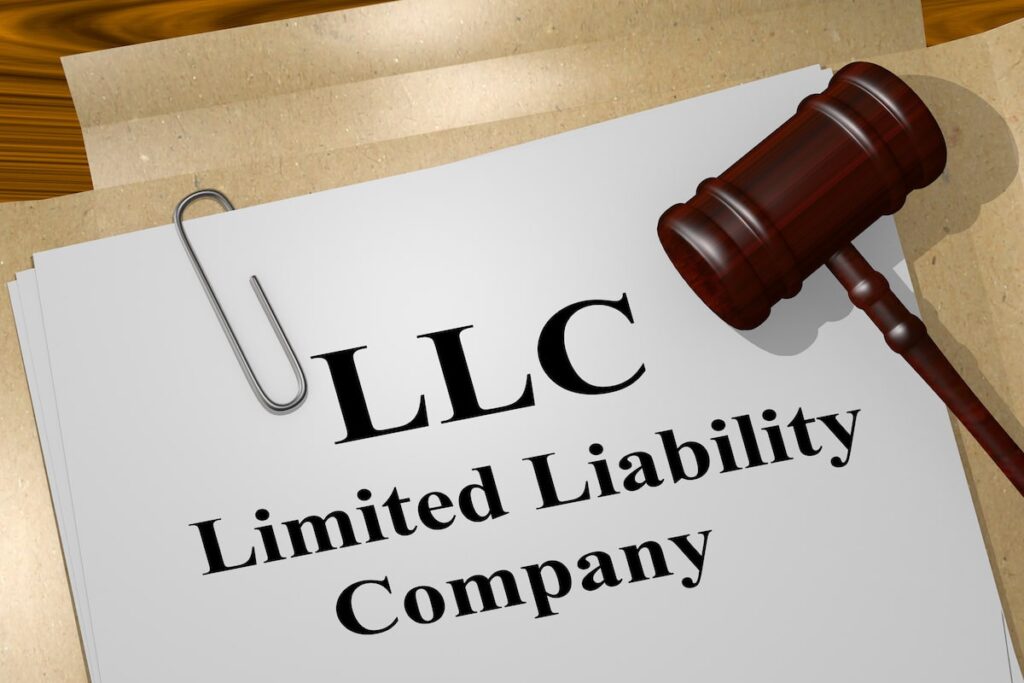
As a real estate investor, the last thing you want is for your properties to drop in value dramatically or be taken from you. However, this happens more often than you might think.
For example, a tenant living in one of your rentals could slip and fall and then sue you for liability as the owner. Or a business deal could go wrong and cause your partner to retaliate by going after your real estate assets.
Whatever the case may be, real estate investing is inherently risky. But that doesn’t mean you can’t reduce the risk with strategic planning. So here are 9 different real estate asset protection tactics you can try:
Table of Contents
1. Real estate attorney
First and foremost, get a real estate attorney in your corner. They can help protect your assets in court, oversee deals, and draw up protective legal structures (more on these in the next sections).
For example, if you buy a brand-new property and discover it has a construction defect, an attorney can help hold the builder liable. Or if you’re navigating a complex real estate sale, they can look over the contract to help protect your interests.
If nothing else, having a real estate attorney review your business deals can save you from making costly mistakes.
2. Insurance

Source: learn.roofstock.com
Insurance is another way to protect their assets. Home insurance can protect your primary residence against damage from natural disasters and loss of personal belongings. Landlord insurance can protect your rental properties against loss of rental income, damage from tenants, and liability for injuries that occur on the premises.
Other types of insurance include fire insurance, flood insurance, and title insurance (which can protect you against ownership disputes).
Of course, insurance can’t protect you against every circumstance. But it can give you peace of mind, knowing that the most common causes of loss are covered.
3. Lease agreements and contracts
Drafting rock-solid lease agreements is crucial in protecting yourself against bad tenants. A contract can include provisions regarding late rent payments, damage to the property, grounds for eviction, and more.
Over time, you can polish your lease agreements to address every foreseeable circumstance. That way, you don’t have to suffer unnecessary property damage or rental income loss.
4. Property management
As your real estate portfolio grows, it can be challenging to manage it all on your own. At some point, it makes sense to hire a property manager. They can take care of day-to-day tasks, such as collecting rent, property maintenance, screening tenants, marketing vacant rental units, and so on.
In addition, property managers can help ensure you comply with all relevant housing and landlord regulations. That way, you don’t accidentally make a mistake that could open you up to legal challenges.
Property managers also serve as a buffer between you and tenants so that you don’t have to deal with tenants contacting or coming after you personally.
5. Regular Property Inspections
Conducting regular property inspections is a key strategy for property owners and managers to maintain their assets effectively. These inspections play a crucial role in identifying maintenance issues early on, allowing for prompt and proactive responses. By addressing problems such as structural weaknesses, electrical faults, or plumbing issues immediately, you can prevent accidents that might lead to injuries or worse. This proactive approach not only ensures that your properties remain in optimal condition, but it also significantly reduces the risk of potential liabilities and trusts problems.
Moreover, regular inspections help in preserving the value of the property and enhancing tenant satisfaction. They serve as a deterrent to legal disputes, as consistent maintenance minimizes the chances of negligence claims. Ultimately, this practice demonstrates a commitment to property upkeep and safety, fostering a positive reputation among tenants and within the community. Regular property inspections are thus a fundamental aspect of responsible property management, ensuring the longevity and safety of the property while mitigating legal risks.
6. Limited liability company (LLC)

Source: businesslinkuae.com
A limited liability company (LLC) is a legal structure that separates your business assets from your personal assets. This way, if creditors or others come after you, your personal assets (such as your house, car, etc.) won’t be at risk. Only assets that are tied to the business will be.
To maximize asset protection, you can create a separate LLC for each of your investment properties. Then only one property will ever be at risk for a given dispute.
Another benefit of LLCs is that they allow for pass-through taxation, meaning you won’t be subject to double taxation as corporations are. Overall, LLCs are a relatively inexpensive and flexible way to safeguard your real estate investments.
7. Irrevocable asset protection trust
An asset protection trust (APT) is a legal arrangement, by which you can transfer responsibility for your investment property to a trustee, and thereby protect it against potential creditors, lawsuits, and other financial risks like bankruptcy.
The trustee manages the property under the terms and conditions you set as the settlor or grantor. However, to truly protect your assets, you must make the trust irrevocable, meaning you cannot change the terms of the trust or dissolve it after the fact. You must stick to the rules you set initially.
Irrevocable asset protection trusts are generally considered the most robust asset protection strategy out there.
8. Homestead exemption
To encourage homeownership, many U.S. states offer homestead exemptions as a way to protect a portion of your primary residence against certain types of creditors.
A homestead exemption can shield a specific dollar amount or a percentage of the home’s assessed value from claims by credit card companies, medical bill collectors, and other creditors. However, the exemption usually doesn’t apply to mortgage lenders, property tax authorities, or contractors who have done work on the house.
In addition, a homestead exemption can lower your property taxes by making only a portion of your property’s assessed value subject to tax.
Keep in mind, however, that to qualify for a homestead exemption, you often must meet certain requirements regarding age, disability, or income level. Contact your local government or tax assessor’s office to see if this is an option for you and your primary residence.
9. Protection through debt

Source: investopedia.com
Finally, you can protect your real estate assets by pulling out equity from them. There are many ways to do this.
For example, you could refinance an existing mortgage to turn equity into cash that you can invest elsewhere. That way, you will have less equity at risk. Similarly, you can obtain a renovation or home equity line of credit (HELOC) to fund property improvements.
Of course, using debt to improve your property can also increase its value to help protect it from depreciation.
Adding it all up
At the end of the day, there are many ways to protect your real estate assets. Which tactics you choose will depend on your personal circumstances and what you can afford.
Do your due diligence and implement the strategies that make the most sense for you.







